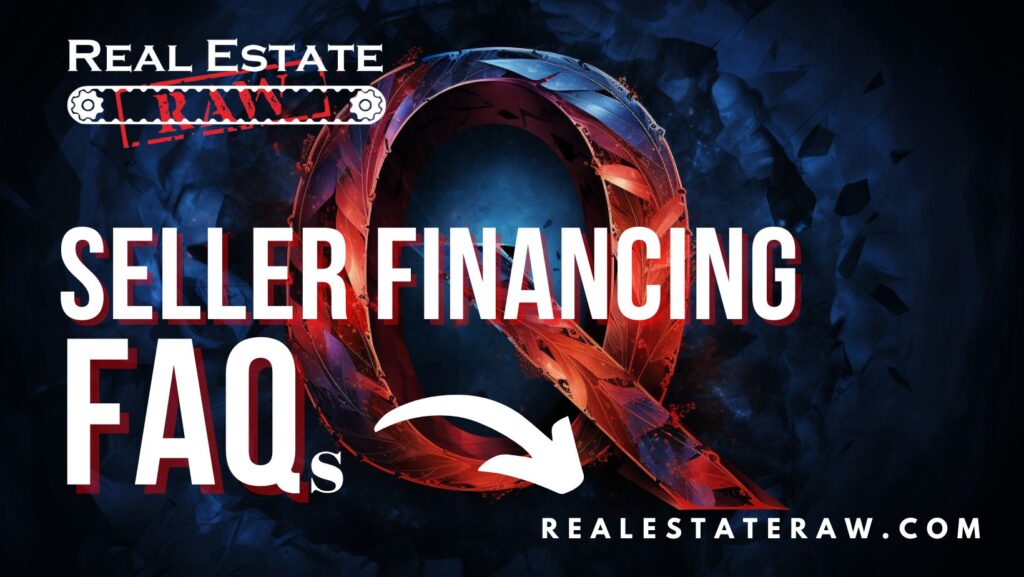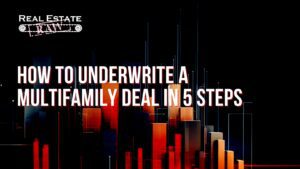Here are the top questions I get when teaching the subject of seller financing. I have provided my answer to each one. This information comes from my book Creative Cash.
- What is seller financing?
- Seller financing is where a seller accepts a mortgage from the buyer of their real estate instead of getting all cash at closing. Typically, a buyer will give the seller cash at closing for their property. The buyer either already has that cash or the buyer gets a loan from a lender. With seller financing the seller is replacing the traditional lender (bank) and accepting the buyers IOU at closing.
- How do I find seller financing deals?
- You don’t. As a buyer you should have systems for deal flow. This could include working with realtors or contacting owners directly. Either way you need to analyze deals on a regular basis. If your analysis shows that the deal will not work with traditional debt, make a creative offer. Your deal flow system has nothing to do with seller financing. Look at all deals.
- How do I negotiate a seller financing deal?
- Use my S.P.Y. Technique©. This stands for Seller, Property, You. This is the order in which you want to make/negotiate any creative offer for real estate. First look at why the seller wants to sell and make sure your offer creates value for the seller in that regard. Second, you look at the property and make sure the offer creates value by mitigating any property issues like repairs or deferred maintenance. Lastly you decide if this is good for you. Never reverse the order.
- How much money should I put down on a seller financing deal?
- As little as possible but as much as it takes to get the deal done. This is going to be negotiated specifically for each deal. Use the S.P.Y. Technique©.
- If a property needs repairs, you should try to trade down payment money for the cost of the repairs. If a seller wants a $20,000 down payment but you find $10,000 worth of need repairs, pay the seller the $10,000 and do the other $10,000 worth of work. This is a way to reduce the cash needed for dealing with deferred maintenance.
- What interest rate should I use?
- Usually, the rate for a seller financing deal will be close to what the current market rate would be. Again, this is a totally negotiated item. Keep in mind that the property will have to be able to cover this payment to the seller plus cash flow to you.
- How long should the loan be?
- My general rule of thumb is that the higher the asking price, the longer the loan term. The reason for this is exit strategy. I am going to need time for the property to rise in value so that I can sell or refinance to pay the seller’s mortgage off.
- Can I refinance a seller financed deal?
- Yes. In a seller financing the seller will transfer the title to you and hold a lien against the asset in the form of the mortgage. As the owner you would be able to sell or refinance unless you agree to some type of restrictions from the seller pertaining to the repayment of the loan prior to the maturity date.
- How do I pay a realtor’s commission on a seller financing deal?
- Technically this is the seller’s problem not yours as the buyer, but it may be presented to you as your problem. The two most common ways are that the realtor’s commission is paid by some of the downpayment money you give the seller at closing. The second would be the realtor takes an IOU to be included in the mortgage contract. In this case the realtor would get paid when you sell or refinance.
- I have also taken care of a realtor’s fees once by sharing in the cash flow produced by the building.
- Be creative!
- What are the major risks with seller financing?
- Foreclosure. This is the same risk you take when getting a loan from a bank. Seller financing is no different in that regard. The seller will have a line on the property. If you don’t pay the mortgage they can foreclose.
For more information like this check out my other articles at www.realestateraw.com.
Best of luck,
Bill Ham


































